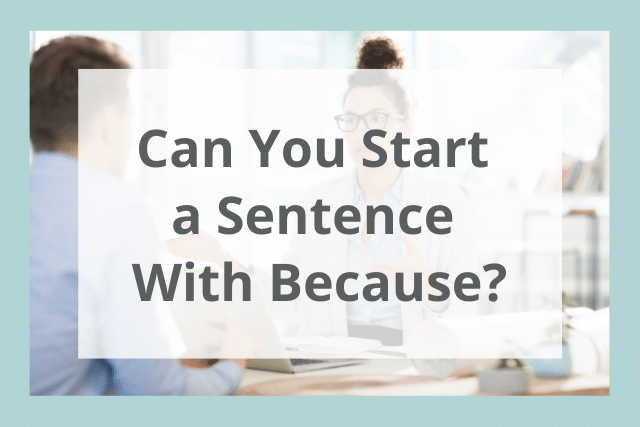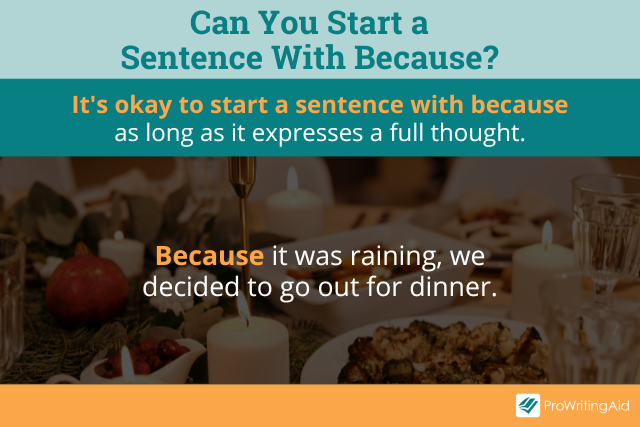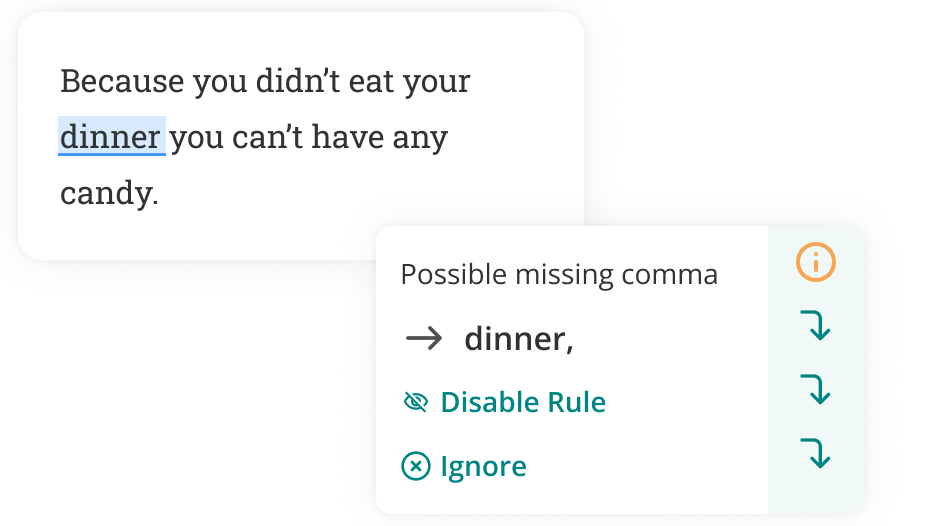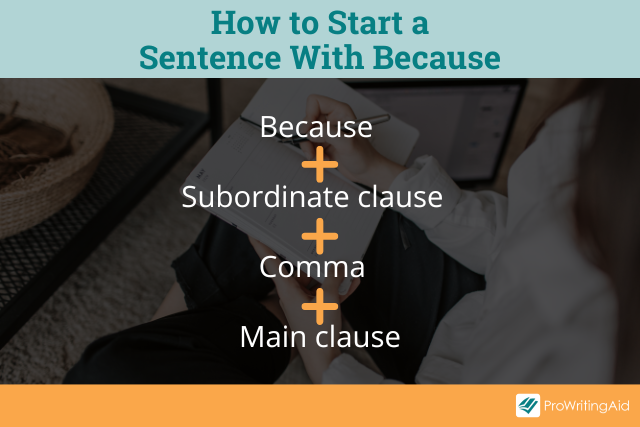
There is a lot of controversy around whether you can start a sentence with because.
The simple answer? Yes, you can start a sentence with because if it is a full sentence and not a sentence fragment. You can also start a sentence with because if you’re using it conversationally to answer a “why“ question.
In this article, we’ll look at both instances and a few example sentences.
When Can You Start a Sentence With Because?
It’s okay to start a sentence with because as long as it’s a complete sentence that expresses a full thought.
Because is a subordinating conjunction that means “for that reason.“ Subordinate conjunctions connect a subordinate clause (dependent clause) to an independent clause.
Just a quick refresher, an independent clause can stand on its own as a sentence, while a subordinate clause cannot.
When we start a sentence with because the subordinate clause comes first, which helps to indicate that emphasis is being placed on the main clause that comes at the end.
Here are some sentences that start with because:
- Because of the flight delays, she missed the wedding.
- Because of you, I am in trouble.
- Because it was raining, we decided not to go out for dinner.

Can You Start a Paragraph With Because?
Starting a paragraph with because is okay as long as you are writing complete sentences. To achieve this, join the subordinate clause starting with because and the main clause with a comma.
Don’t forget that if you’re ever unsure, you can use ProWritingAid. The tool will highlight any missing commas in your writing, so your clauses will always be linked correctly.

How to Start a Sentence With Because
The issue you’ll likely encounter with starting a sentence with because is that it will create a sentence fragment.
In this case, the sentence is incomplete and does not have all the components of a complete sentence—a subject and a verb.
To start a sentence with because you will have to do some rewording to make it grammatically correct.
You simply flip the order of your clauses and put a comma between them. Just like that, your sentence will start with because and will still be correct.
Let’s look at it in practice.
- My internet went down because of the severe storm
In the example above, you can distinctly make out the two clauses. “My internet went down” is the main clause and could stand as a complete sentence on its own. “because of the severe storm,” however, is a subordinate clause. It cannot stand on its own because it won’t make any sense.
If we were to separate the sentences with a period it would look like this:
- My internet went down. Because of the severe storm.
The second sentence highlights the main issue with starting a sentence with because—it will become a sentence fragment.
The correct sentence will look like this:
- Because of the severe storm, my internet went down.
Here’s a formula that you can use to start a sentence with because:

Because (+ subordinate clause) + comma + main clause
Tips for Starting a Sentence With Because
English language rules have adapted to common usage, which is why the historical rule of not using because as a sentence starter has changed. Things that were previously considered incorrect grammar are now widely acceptable.
It is very common in conversational English to start a fragmented sentence with because. In this sense, an incomplete sentence is acceptable in informal writing and when writing dialogue.
For example:
- Why aren’t you smiling? Because I’m not happy.
- Why didn’t you go to school today? Because I didn’t feel well.
Conclusion on Starting a Sentence With Because
To recap, here are the rules for starting a sentences with because:
- To start a sentence with because, you need two clauses connected by a comma.
- Fragmented sentences starting with because are acceptable when speaking conversationally.


